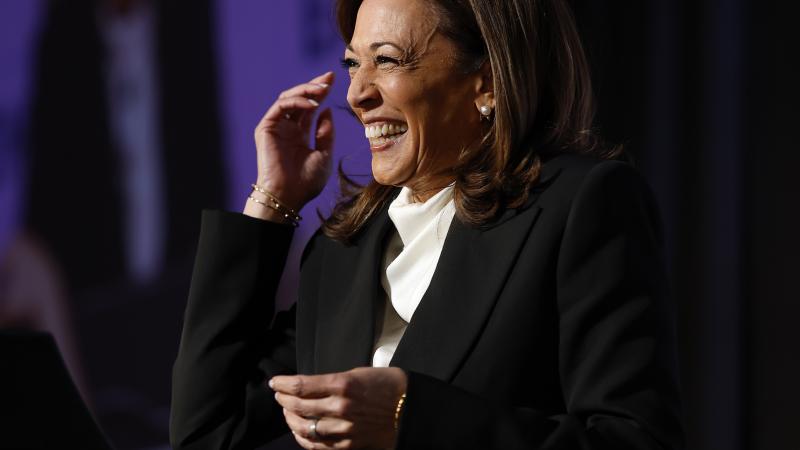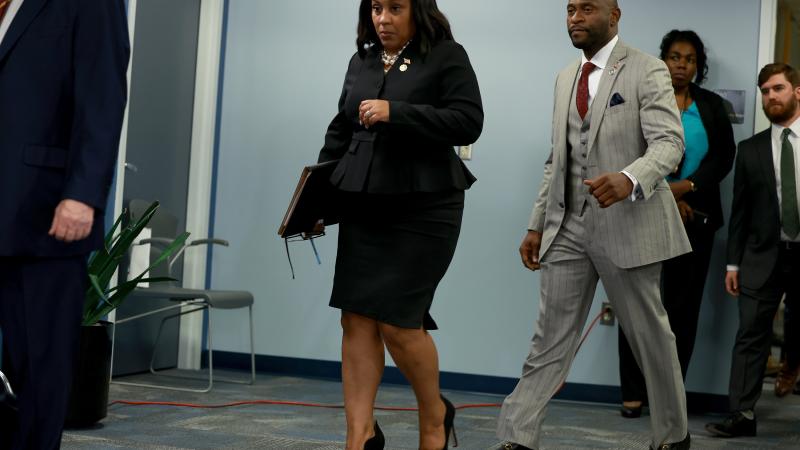More AZ election issues: Ballot harvester named vice mayor, upcoming GOP lawsuit, Maricopa audit
“This is what happens when you run elections like you're in a banana republic,” Kari Lake said.
Arizona election issues continue as a convicted ballot harvester becomes vice mayor, the state GOP prepares to sue the secretary of state, and the former state Supreme Court justice explained the narrow scope of the Maricopa County 2022 election audit.
Arizona has experienced significant election issues for many years. Maricopa County alone, which is the state’s most populated county, has had at least a decade of election problems, going back to 2012.
Also, more than 5,600 federal-only ballots were cast in the 2020 presidential election in Arizona, without proof of U.S. citizenship required by the voters who cast them, according to data from the state's counties.
Now, an elected official who is a convicted ballot harvester from the 2020 election has received a new government position.
Gloria Torres, who was convicted of ballot harvesting last year, has been appointed as the new vice mayor of San Luis, the Arizona Daily Independent reported. The city council voted 4-3 to approve Torres’ appointment last month.
Torres pleaded guilty to ballot abuse in June after being indicted the previous October, following an investigation into the 2020 crime by the state attorney general’s office and the Yuma County Sheriff’s Office.
The investigation determined that Torres had collected seven early-voting ballots for voters in the August 2020 primary election, giving them to another woman who put them in a ballot drop box, according to The Yuma Sun.
Torres pleaded guilty, received a sentence of 24 months’ probation and was ordered to pay a $2,500 fine. Torres is also not allowed to seek reelection to the city council.
The former San Luis mayor, Guillermina Fuentes, was also charged with ballot harvesting and later sentenced to a two-year term of probation, and was ordered to serve a 30-day term in the Yuma County Jail for her role in in an August 2020 Primary Election "ballot harvesting" scheme.
Former Arizona Assistant Attorney General Jennifer Wright posted on X on Tuesday, “In Yuma, AZ, convicted election fraud apparently isn’t a bar to serving in public office.”
Arizona GOP U.S. Senate candidate Kari Lake said on the “Just the News, No Noise” TV show on Tuesday regarding Torres’ new appointment: “We're living in a very corrupt state here in Arizona.”
“She's been convicted, and now they are appointing her, putting her into this position,” Lake later added. “It's ludicrous, it's abhorrent, it's just a slap in the face to the people of this state.”
“This is what happens when you run elections like you're in a banana republic,” she continued. “And then people tell you, ‘don't ask any questions and don't get to the bottom of it.’”
Torres didn't respond to a request for comment on Thursday.
Meanwhile, Arizona Secretary of State Adrian Fontes (D) released the updated Elections Procedures Manual (EPM) on Saturday, resulting in the state GOP announcing that it will sue the secretary over the document.
The EPM is issued by the secretary of state every two years to provide guidance on election rules and procedures, but the state GOP, state House speaker, and state Senate president have expressed their disapproval and said they’re planning litigation.
On Sunday, the Arizona GOP posted a press release explaining the issues the party has with the EPM, such as “Free Speech Concerns”; “Restricting Voter Challenges”; “Excluding GOP Oversight”; and “Ignoring Legal Precedents.”
The Arizona GOP claimed that Fontes is “attempting to criminalize the criticisms of election officials by voters and throw them out of polling places”; “attempting to criminalize raising voter challenges to poll workers that he disapproves of”; seeking “to deprive the GOP of its statutorily protected right to choose members of the central count and signature verification board”; and purporting “to get rid of the AZGOP’s recent hard-fought court victory in Yavapai County requiring elections workers to use only the voter’s authorized comparison sample to verify signatures on early ballot envelopes.”
Arizona GOP Chairman Jeff DeWit reposted the press release on X (formerly Twitter) on Sunday, commenting, “Just so it's clear, the AZGOP WILL be filing a lawsuit on this egregious destruction of election fairness by the Democrats.”
Arizona Senate President Warren Petersen (R) also posted on X about the EPM on Sunday, writing, “We warned the SOS early on that we would sue if the Elections Procedure Manual was not corrected to reflect the laws passed by the legislature. Unfortunately that did not happen. I imagine their [sic] will be many plaintiffs join [sic] the Senate in protecting our elections.”
Arizona House Speaker Ben Toma (R) posted about the EPM on X on Sunday, expressing his dismay at the secretary’s refusal to correct issues that the state House had found in the EPM draft.
“A lawful Elections Procedures Manual is paramount for the integrity of our elections,” Toma wrote. “It’s been a top priority of the @AZHouseGOP. I’m disappointed that SoS Fontes refused to correct many objections we raised in our comment to the EPM draft. We are preparing for litigation.”
The Arizona Secretary of State's office didn't respond to a request for comment on Tuesday.
Last week, the GOP-led state house held a hearing to learn more about the Maricopa County 2022 election audit.
On Thursday, the Arizona House Ad Hoc Committee on Oversight, Accountability and Big Tech heard testimony from former Arizona Supreme Court Justice Ruth McGregor regarding the audit that she had conducted earlier in the year.
In April, Maricopa County released the audit report on the election, during which there were ballot printer issues that occurred at more than 70 vote centers on Election Day, resulting in long lines as many voters' ballots were unreadable by tabulator machines.
According to the report, the county expanded the length of the ballots from 19 inches during the primary election to 20 inches in the general election in order to include all of the required information. The increased ballot size in combination with the use of 100-pound ballot paper, the report concludes, was too great a strain on some older printers that were used.
Regarding the issue of ballots being printed for 19-inch paper rather than 20-inch, the report concluded that "ballots were re-sized as 'fit to page,' a process that entirely changed the location of the timing marks on the ballots and assured that neither the on-site tabulators nor the central count tabulators could read the ballots."
OKI, the printer company that was central to the audit, was not contacted during the investigation, and later said there were factual inaccuracies in the released report.
During the committee hearing on Thursday, McGregor confirmed that OKI wasn't contacted for the audit. She also stated that she hadn’t practiced election law while she was in private practice and “probably” didn’t hear any cases regarding election technology as a justice.
Chairman of the committee, state Rep. Alexander Kolodin (R), posted on X on Thursday about the hearing, writing, “In our Oversight hearing, Maricopa's independent investigator revealed that she didn't know election day voters have been having significant problems with ballot rejections since 2018 - was prohibited from looking at prior instances!”
McGregor testified that the county had addressed the ballot printer issues following the 2020 election.
The Facts Inside Our Reporter's Notebook
Links
- decade of election problems
- 5,600 federal-only ballots
- Arizona Daily Independent reported
- according to the Yuma Sun
- Jennifer Wright posted on X
- updated Elections Procedures Manual
- posted a press release
- Arizona GOP claimed
- Jeff DeWit reposted
- posted on X about the EPM
- Toma wrote
- @AZHouseGOP
- heard testimony
- released the audit report
- According to the report
- report concluded
- factual inaccuracies
- hadnât practiced election law
- posted on X
















